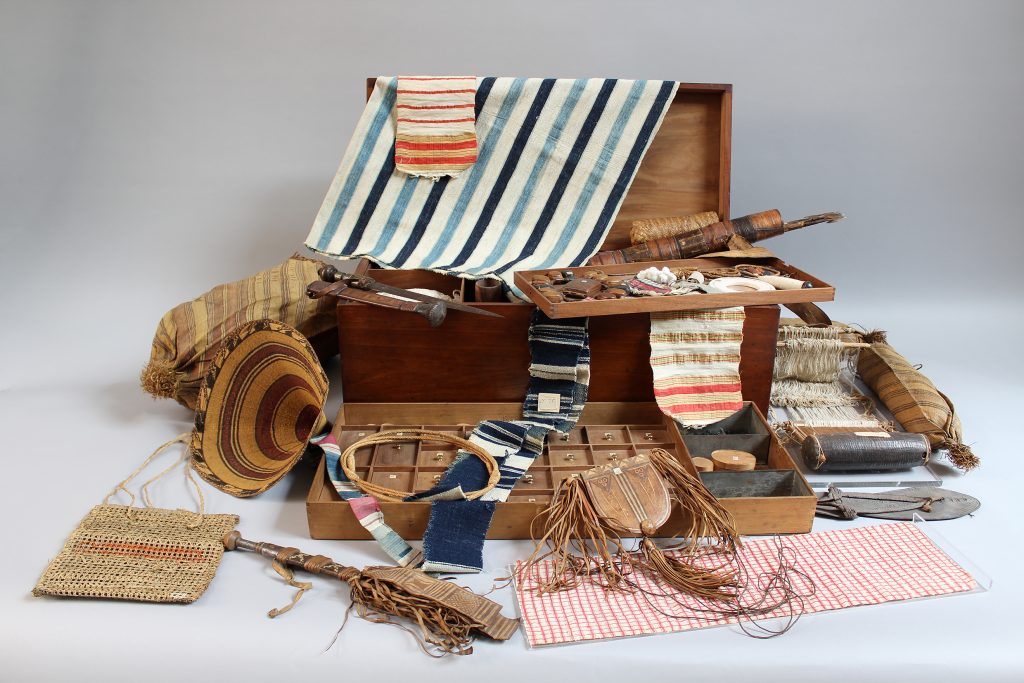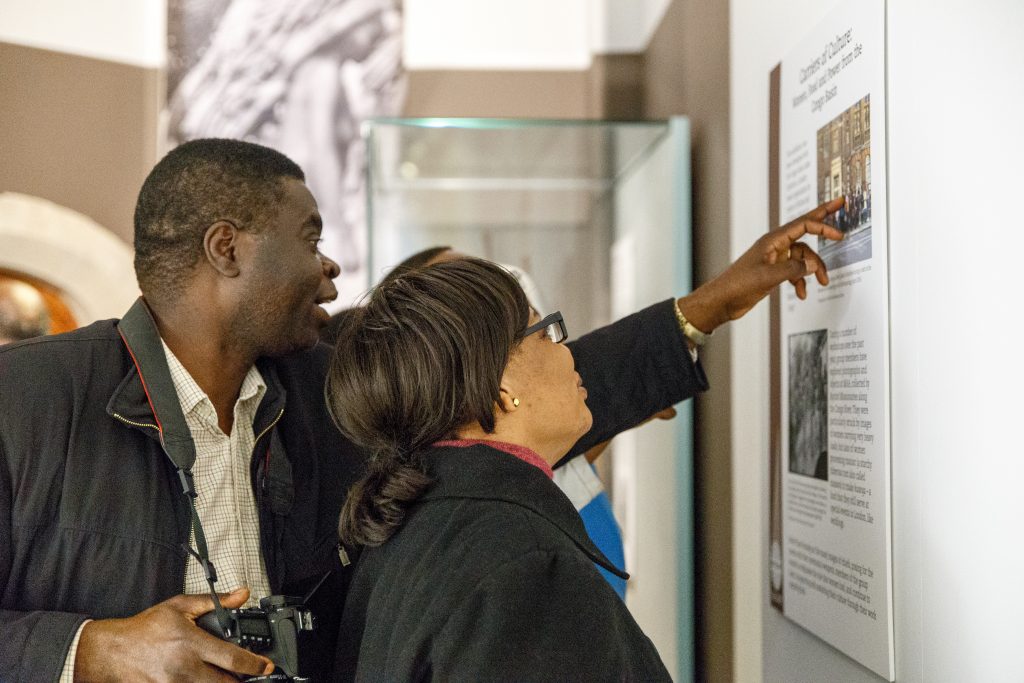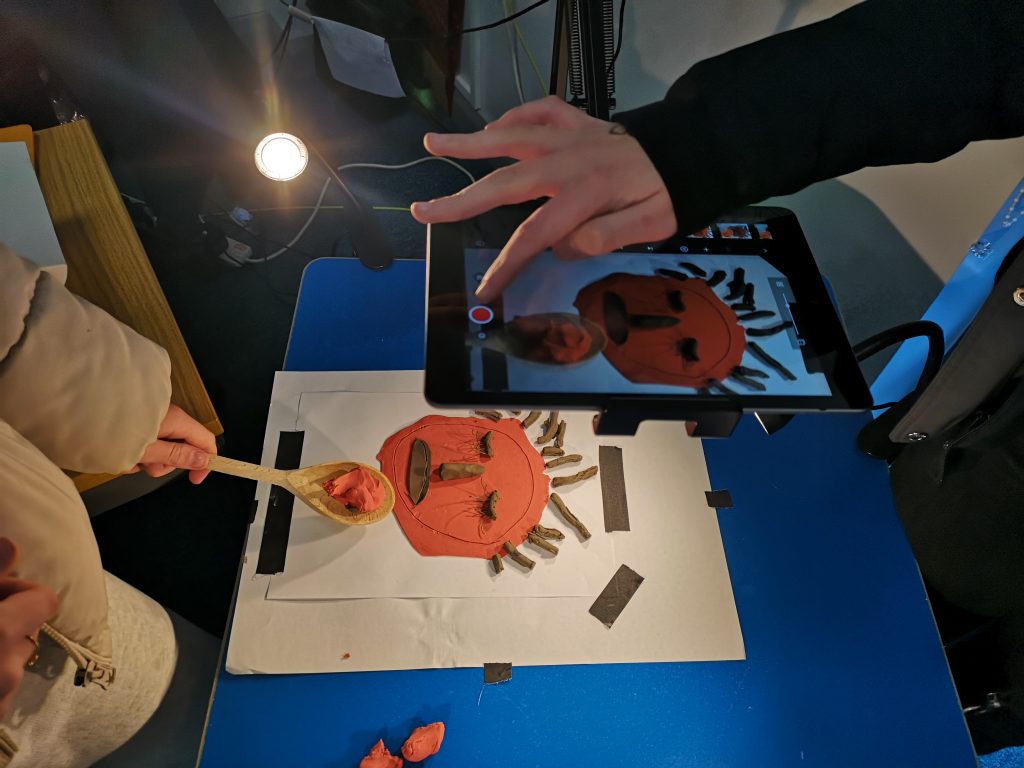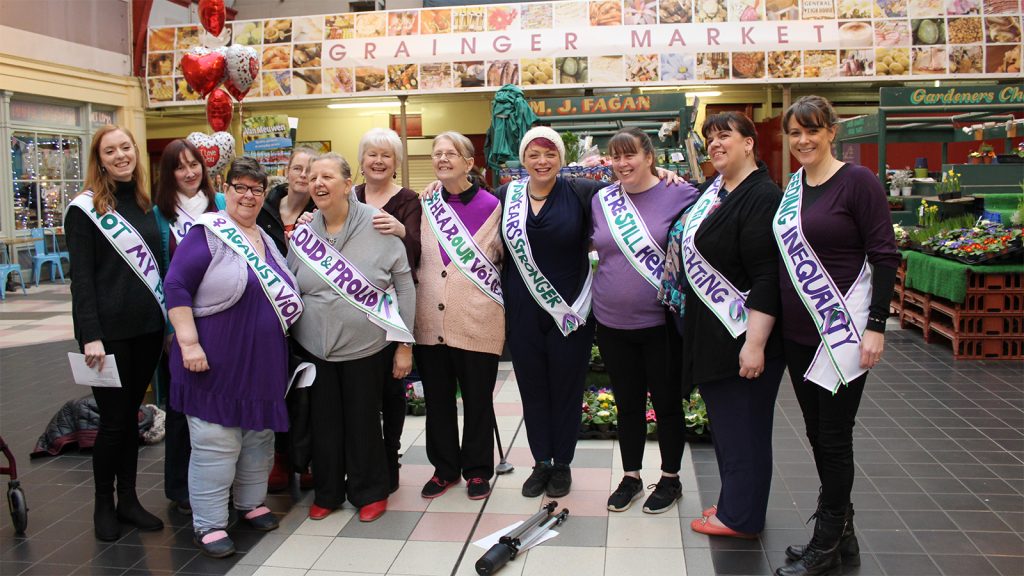Social impact
The MA’s Museums Change Lives campaign states that museums can increase our sense of wellbeing, help us feel proud of where we live, and inspire, challenge and stimulate us.
Collections Fund projects have enabled museums to do all of these things with projects focused around wellbeing, equity, community participation, climate justice, anti-racism and decolonisation.
The fund has enabled museums to be brave, tackling difficult subjects such as the Tower Museum, Derry’s project to support dialogue about conflict resolution and reconciliation; and Wisbech and Fenland Museum’s project using the Thomas Clarkson collection to open debate around modern slavery.

Increasingly, we’re seeing some of the key topics facing society as the focus of our projects, such as the University Museum of Zoology, Cambridge’s “Butterflies through time” project, using collections to inform on biodiversity loss and engage people with environmental change.

Decolonisation is also increasingly represented in funded projects and applications, most recently with the Fitzwilliam Museum’s programme to confront the legacies of empire and enslavement within its collections.
In addition, many projects have tackled community cohesion: from Manchester Art Gallery’s project to engage local communities to develop Platt Hall into the UK’s first user-generated museum; to Sunderland Culture’s “People’s Pyrex” project to raise awareness of the importance of glassmaking in the region.
Many projects have focused on improving mental health in both audiences and participants. For example, Hampshire Cultural Trust is providing hands-on volunteering opportunities for men affected by mental health issues and Waterside Arts Centre worked with community groups in Manchester to combat isolation and loneliness.

Our funded projects often mark the first stage in connecting museums to communities, such as Glasgow Museums’ project supporting volunteer researchers and community curators from migrant backgrounds.
The work established new relationships that the service is committed to continuing. Pitt Rivers Museum’s “Project Multaka” is another success story in establishing new relationships and ways of working. This project worked with forced migrants to become community curators and is now embedded as a core element of the museum’s programme.
“The collaboration with volunteers was linked inextricably with opening the museums to being a more relevant space for local communities. The project brought in a very different group of people who didn’t come from ‘the established museum path’, as one Multaka-Oxford worker put it. Authority and knowledge were mutually constituted and validated on both sides, as each side appreciated what the other brought. As one volunteer put it: ‘I also saw that we gave things to the museum. This was an opportunity for us to open other doors for the museums’ knowledge. Share our knowledge.’”
Multaka end of project report
By working with a range of communities and audiences, funded museums have been able to represent more diverse voices in collections and in the museum workforce. Tyne & Wear Archives & Museums Development Trust engaged with a diverse group of women and girls to create a women’s collection; and Cornwall Museums Partnership’s “Citizen Curators” programme has provided entry level opportunities to a more diverse workforce.
